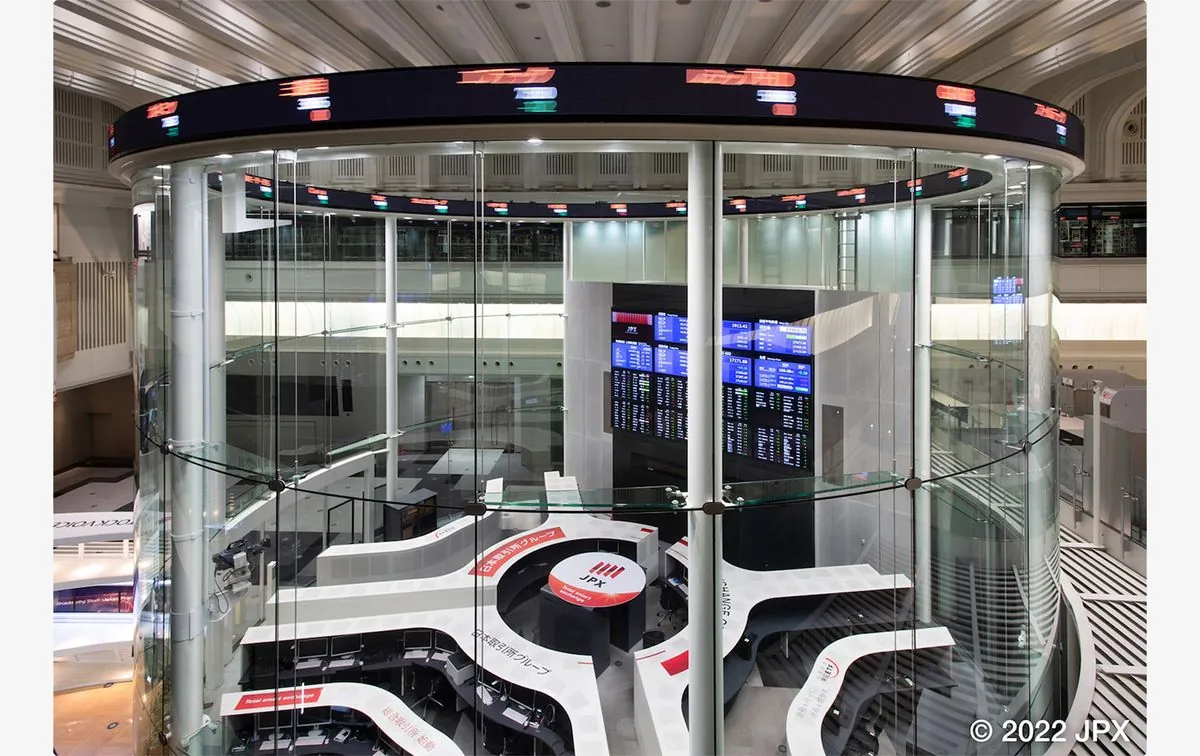Japanese Stocks Rebound After Historic Sell-Off Amid Global Market Turmoil
Japanese shares recover following a record drop, with the Nikkei 225 surging nearly 10%. Other Asian markets show modest gains as global investors navigate economic uncertainties and policy shifts.

In a remarkable turnaround, Japanese equities staged a significant recovery on Tuesday, following a historic sell-off the previous day. The Nikkei 225, Japan's leading stock market index, surged by approximately 9.4% to 34,416.32 by midday, partially recouping losses from Monday's record-breaking point drop.
This rebound outpaced the modest gains observed in other Asian markets. The Hang Seng Index in Hong Kong and the Shanghai Composite Index both edged up slightly, while South Korea's Kospi index rose over 3%. Australia's S&P/ASX 200 also showed a modest increase ahead of a central bank interest rate decision.
Shunichi Suzuki, Japan's Finance Minister, addressed the situation, stating that the government would continue to monitor financial markets in close cooperation with the Bank of Japan. He emphasized the need for careful assessment of the central bank's policy shift impact on various economic factors.

The recent market volatility has been attributed to a combination of factors:
- Rising interest rates
- Strengthening yen
- Unwinding of the yen carry trade
- Disappointing U.S. economic data
- Geopolitical risks in the Middle East
The Bank of Japan's decision to raise its short-term policy rate to 0.25% on July 31 has been a significant catalyst for market movements. This shift has led to concerns about the unwinding of popular trading strategies that relied on a weak yen.
"The market volatility is a perfect storm of macro and market shocks at a time when risk assets were already overbought and overstretched."
The global market rout on Monday also affected Wall Street, with major indices experiencing significant declines. The Dow Jones Industrial Average dropped 2.6%, the S&P 500 lost 3.0%, and the tech-heavy Nasdaq Composite fell 3.4%.
As investors navigate these turbulent waters, the focus remains on economic indicators, central bank policies, and geopolitical developments. The interplay between the strengthening yen, which is often considered a safe-haven currency, and global market dynamics continues to be a key factor in shaping investor sentiment.


































